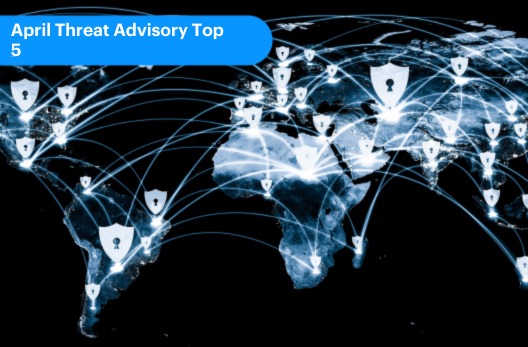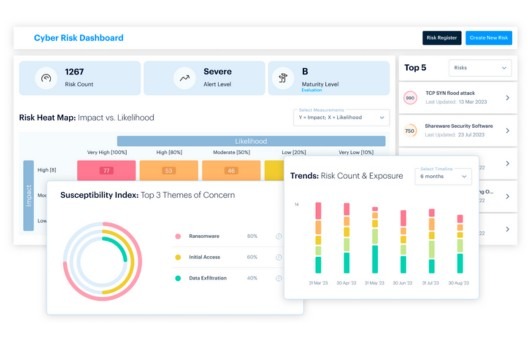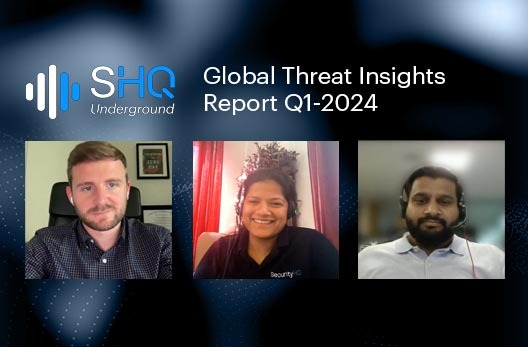SecurityHQ Update • 10 MIN READ
Summer Threat Forecast 2023
by Eleanor Barlow • Jul 2023
Given the scope of cyber threats throughout the first half of 2023, it is more important than ever for businesses to take proactive measures to protect themselves. In this article, we explore the predicted cybersecurity threats impacting this Summer, based off the threats seen throughout the last 6 months, and provide valuable insights to help organizations improve their cyber security defences.
Cybersecurity Threat Predictions for Summer 2023
AI-Powered Social Engineering Attacks
Artificial intelligence has entered almost all spheres of the business world. While AI brings numerous benefits and advancements, it also introduces new cybersecurity risks, such as social engineering attacks. These attacks entail manipulative tactics to deceive the victims into revealing sensitive information or trespassing security structures of the organizations. To execute these attacks, cybercriminals rely on AI-based natural language processing (NLP) algorithms to generate more realistic and human-like phishing emails, chatbot interactions, or voice calls. Detecting these malicious campaigns is getting harder for the average employee, which is why significant training is required to know what to look for and how to prevent escalation.
Next Step: Learn more about social engineering attacks, and steps to put in place, here.
Cloud-Based Breaches
Cloud computing has become a norm in today’s digital landscape, offering scalability, flexibility, and cost-efficiency to businesses. Nevertheless, the widespread adoption of cloud services exposes organizations to new cybersecurity threats, making them a major concern in 2023. Cybercriminals target cloud environments to exploit misconfigurations, weak access controls, or insecure APIs. A recent example of the consequences of cloud misconfigurations is the Toyota data leak, where the personal information of over two million customers was exposed after an access key was leaked on GitHub for almost five years.
Next Step: Learn more about Cloud Security, in this infographic.
Enhanced Phishing Attacks
Phishing attacks involve cybercriminals posing as trustworthy entities with the intention of deceiving individuals into divulging sensitive information or performing malicious actions. With over 500 million phishing attacks reported in 2022 (Forbes Advisor), this number is expected to rise further this year. In fact, threat actors are continuously refining their techniques to make phishing emails and messages appear more genuine and convincing, which take a trained eye to spot.
Next Step: Read this blog on latest HTML phishing vulnerabilities to learn more.
Zero-Day Vulnerabilities in Supply Chain Attacks
With the increasing complexity of supply chains and the interconnectivity of various systems, zero-day vulnerabilities are anticipated to be a significant cybersecurity threat during the Summer of 2023. A zero-day attack is a strategic exploitation that involves the use of previously unknown vulnerabilities in the supply chain and has no available patches or fixes. These vulnerabilities in the supply chain can have severe consequences, allowing attackers to compromise the integrity and security of products and services. They can lead to data breaches, unauthorized access, and the potential for sabotage or manipulation of systems.
Next Step: Read about an example of a zero-day vulnerability, here.
Enhanced Cyber Security Posture this Summer
In order to effectively deal with the cyber security challenges of 2023, organizations need to adopt a customized and agile cybersecurity strategy. By partnering with an MSSP, organizations can mitigate the risks associated with cyberattacks and safeguard their sensitive information.
This is where SecurityHQ’s Vulnerability Management as a Service (VMaaS) comes in! This comprehensive service helps you accurately detect, classify, and contextualize vulnerabilities, without the heavy lifting. To learn more, download the data sheet here. Or, get in touch with us to speak to one of our experts today!












